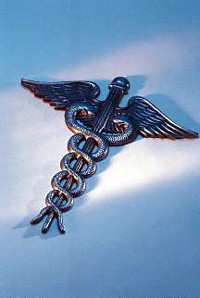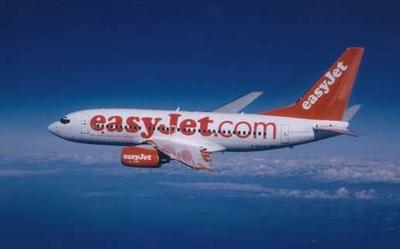EasyJet Agrees To Reimburse Doctor For Ticket
 A novel medical
procedure almost didn't happen this summer, thanks to a British
low-cost airline... and it was general aviation that literally flew
to the rescue. BBC News reports British, German and Spanish doctors
partnered on the effort that resulted in the first-ever transplant
of a donor trachea, or windpipe, into a patient without the need
for immunosuppresants.
A novel medical
procedure almost didn't happen this summer, thanks to a British
low-cost airline... and it was general aviation that literally flew
to the rescue. BBC News reports British, German and Spanish doctors
partnered on the effort that resulted in the first-ever transplant
of a donor trachea, or windpipe, into a patient without the need
for immunosuppresants.
The procedure -- which was successfully performed in June --
involved bone marrow stem cells obtained from the patient,
30-year-old Claudia Castillo, which were then grown in a lab and
merged with the donor organ. Surgeons used the cells to line the
windpipe... effectively fooling Castillo's body into believing the
trachea was her own, and preventing the risk of rejection.
There was one problem, however. The lab was in Bristol... while
the patient and donor organ were in Barcelona. And unless the cells
were implanted within 16 hours from the time they were removed from
the growth media, all efforts would have been for naught.
Only one airline flies the Bristol-Barcelona route -- low-cost
carrier EasyJet. British scientists say they contacted the airline
and made arrangements for the container carrying the stem cells to
travel with a medical student. Officials note they also followed up
with the airline several times, to make sure there would be no
problems.
Sure enough, when German medical student Phillip Jungerbluth
arrived at the check-in counter, lab cooler in hand... ticket
agents said he couldn't travel with the suspect container.
"Check-in staff said that they couldn't take the material on
board and that it could have been some kind of dangerous material,"
said Professor Anthony Hollander, one of the scientists involved.
"After significant debate, it was concluded that it wasn't going to
happen."
Fortunately, Jungerbluth knew a thoracic surgeon in Germany who
also had his own business jet... and with the clock ticking, he
made an important phone call.
"The clock was ticking. We'd taken the cells out of their
culture media an hour before," said lead researcher Professor
Martin Birchall. "We thought about driving to Barcelona, but that
would have taken too long... We had a couple of conversations, and
within two hours the surgeon was in Bristol -- with his private
jet."
Birchall paid the tab for the flight's operational costs --
about $21,000 in today's dollars -- out of his own pocket. "If we
hadn't been able to get the cells there, we would have wasted years
of work and this major breakthrough for surgery and science
wouldn't have taken place," he explained.
The cells arrived on time... and the modified trachea was
successfully implanted into Castillo, whose own windpipe had been
damaged by tuberculosis. Five months after the surgery, there
remains no sign of rejection of the new organ, and Castillo is
breathing normally once again.
"The patient has not developed antibodies to her graft, despite
not taking any immunosuppressive drugs," reads a statement from
Bristol University, cited by The New York Times.

For its part, EasyJet maintains it has no record of any special
requests made by the Bristol researchers... but as a goodwill
gesture, the airline did agree to reimburse Birchall for the cost
of his ticket. Bristol picked up the tab for the private jet.
 ANN's Daily Aero-Linx (04.16.24)
ANN's Daily Aero-Linx (04.16.24) Aero-News: Quote of the Day (04.16.24)
Aero-News: Quote of the Day (04.16.24) Airborne 04.10.24: SnF24!, A50 Heritage Reveal, HeliCycle!, Montaer MC-01
Airborne 04.10.24: SnF24!, A50 Heritage Reveal, HeliCycle!, Montaer MC-01 Airborne 04.12.24: SnF24!, G100UL Is Here, Holy Micro, Plane Tags
Airborne 04.12.24: SnF24!, G100UL Is Here, Holy Micro, Plane Tags Airborne-Flight Training 04.17.24: Feds Need Controllers, Spirit Delay, Redbird
Airborne-Flight Training 04.17.24: Feds Need Controllers, Spirit Delay, Redbird




